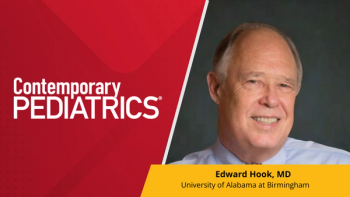
COVID-19 pandemic intensified burnout in primary care physicians around the world
Commonwealth Fund survey of 10 nations finds primary care in global crisis.
Primary care physician burnout got worse in developed nations around the world during the COVID-19 pandemic.
The
The survey findings “confirm what many fear could be true: The pandemic is taking an alarming toll on the well-being of our primary care workforce both here in the U.S. and around the world,” Commonwealth Fund President David Blumenthal, MD, MPP, said in an online meeting to discuss the survey.
“Primary care doctors are burned out, stressed, and overworked. Many feel that the pandemic has negatively impacted the quality of care, they are providing,” Blumenthal said. “For decades, we've known that the U.S. and many other countries have faced a shortage of the primary care physicians. And these latest findings suggest that, without interventions, this shortage may soon reach record levels.”
Blumenthal discussed the results with coauthors Munira Z. Gunja, senior researcher for the Commonwealth Fund’s International Program in Health Policy and Practice Innovations, and Reginald D. Williams II, vice president for International health policy and practice innovations.
Highlights
The report highlighted several findings:
- In all the countries, a majority of physicians reported increases in workloads since the beginning of the pandemic.
- Physicians younger than 55 years were more likely to experience stress, emotional distress, or burnout. In nearly all countries, they were more likely to seek professional help than older doctors.
- Physicians experiencing stress, emotional distress, or burnout were more likely to report the patient care they provided was worse than before the pandemic.
- At least half of physicians aged 55 years or older said they would stop seeing patients in the next three years. The Commonwealth Fund characterized it as a workforce in crisis, with remaining younger physicians stressed and burned out by their jobs.
Possible solutions
Blumenthal and Gunja suggested several solutions:
- Greater investment in resources for the well-being of primary care physicians. Those include mental health services.
- Increasing Medicare and Medicaid reimbursement for primary care services.
- Establishing loan forgiveness to draw more medical students into the field.
They also endorsed the National Academy of Medicine’s National Plan for Health Workforce Well-Being.
Surprising findings
The researcher discussed at least two surprises in the findings.
In many instances, the U.S. health care system trails those in other nations in measures. But the new study showed all the health care systems need to figure out how to prioritize the well-being of the primary care workforce if there is hope for a sustainable, high-functioning, high-performing health care system, Gunja said.
Blumenthal said he was surprised the U.S. did not perform worse because in so many respects, the nation’s primary care system is less well-developed and resourced than in other countries.
It could be that primary care physicians in other countries felt more stress than those in the United States because at the height of the pandemic, they were more commonly first points of treatment for COVID-19. In the United States, a lot of patients relied on urgent care and emergency care, and primary care doctors were not as heavily involved in vaccinations as those in other countries, he said.
Newsletter
Access practical, evidence-based guidance to support better care for our youngest patients. Join our email list for the latest clinical updates.








